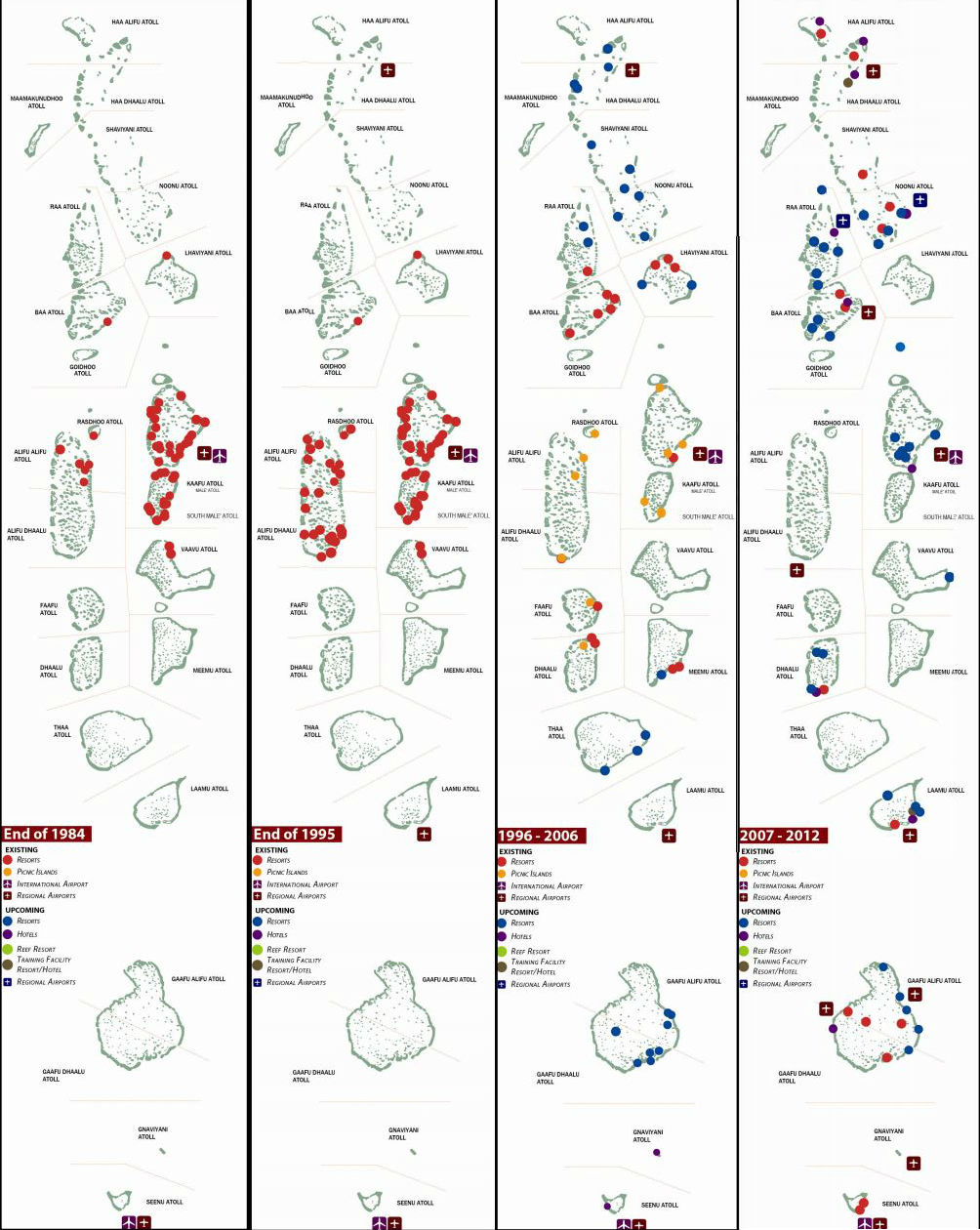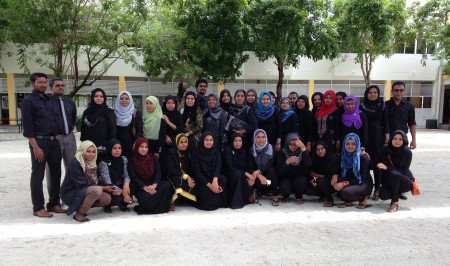The Tourism Ministry has assured that the development of resorts will take place throughout the atolls following an online petition calling for tourism growth in Haa Dhaalu.
Placed on the Avaaz website last week, the petition calls upon the government of President Abdulla Yameen to alleviate the atoll’s economic and social problems by bringing resorts to the area.
“It has been over 40 years since the tourism industry flourished in Maldives. However, the atoll with approximately 20,000 people has not yet got the opportunity to enjoy the economic benefits of this sector,” read the petition.
Noting that Haa Dhaalu is the only atoll not to have any operational resorts, the petition argues that development of the region’s “pristine uninhabited islands” would halt the “mass migration” to the capital Malé, which was “tearing up the social fabric of our society”.
“We have waited long enough to enjoy the success and development that tourism industry has brought to other regions of the Maldives,” the petition argues.
“Hence, on behalf of all the people from Haa Dhaal Atoll, we humbly ask the government not to exclude us from this prosperous and growing industry.We urge the government to give the utmost importance to solve the issue of income disparity caused by uneven development of tourism industry in Maldivian atolls.”
The Maldivian economy is heavily dependent on tourism, accounting for an estimated 80 percent of GDP, generating 38 percent of government revenue in 2012. Tourists arrivals grew by 17 percent between 2012 and 2013.
In response to the petition, State Minister for Tourism Ahmed Musthafa Mohamed told Minivan News today that the government’s promises to develop ten resorts a year would include Haa Dhaalu.
“I can’t comment on previous governments but this government in their manifesto had mentioned that they are planning to develop ten new resorts each year – I’m sure sure that developments will be throughout the Maldives.”
Musthafa noted that a lot of issues affected the location of developments, with the issue of transportation in Haa Dhaalu – part of the country’s northernmost natural atoll, Thiladhunmathi – having been a longstanding one.
Thought the Maldives is now home to over one hundred island resorts spread across 26 natural atolls, the majority of resorts are clustered around the country’s capital Malé and the country’s main international airport.
Despite the opening of Hanimaadhoo International Airport in Haa Dhaalu atoll two years ago, the continued lack of economic activity has led to significant local support for a second regional airport in nearby Kulhudhuffushi.
While the new development threatens to destroy much of the island’s mangrove habitat, recently re-elected island MP Abdul Ghafoor Moosa has previously argued that his constituents’ economic concerns outweighed the environmental.
“Over fifty percent in the north are below the poverty level,” Ghafoor told Minivan News in January. “Still they need economic activity. If they don’t get it, it’s very difficult to survive.”
Haa Dhaalu “unnoticed or perhaps unheard”
The Avaaz petition – which has received over 460 signatures – argues that, despite its relatively high population of 20,000 people, the atoll had gone “unnoticed or perhaps unheard” by consecutive governments.
“The state of our local economy is a great concern for the people of Haa Dhaal Atoll. More importantly, the absence of tourism industry within this atoll has become a major barrier for economic and social development.”
The petition goes on to suggest that the limited local opportunities in the civil service, fisheries, and agriculture had failed to provide enough employment opportunities.
“We do understand that three of our islands have been given for resort development but it has been over 12 years without any of them being opened for tourists. This has cost 2,000 jobs that was promised for us with these resorts.”
The 2013 Tourism Yearbook produced by the Tourism Ministry shows that three resorts are currently under development in the atoll, although only one had been given an estimated opening date – for December this year.
Reasons for the failure to develop secondary tourism hubs in the north and south of the were addressed in the ministry’s ‘Fourth Tourism Master Plan – 2013-2017’.
The document explained that historical growth patterns in the tourism industry had centred on the Malé area after private investors sought greater economies of scale. The introduction of sea planes – expanding the area serviceable from Ibrahim Nasir International Airport – had further delayed regional expansion.
“If, as the last two masterplans strongly suggested, the suitable islands around the Malé’s hub are now more or less fully developed, the time has come to give priority to the secondary hubs,” read the document.

 (0)Dislikes
(0)Dislikes (0)
(0)